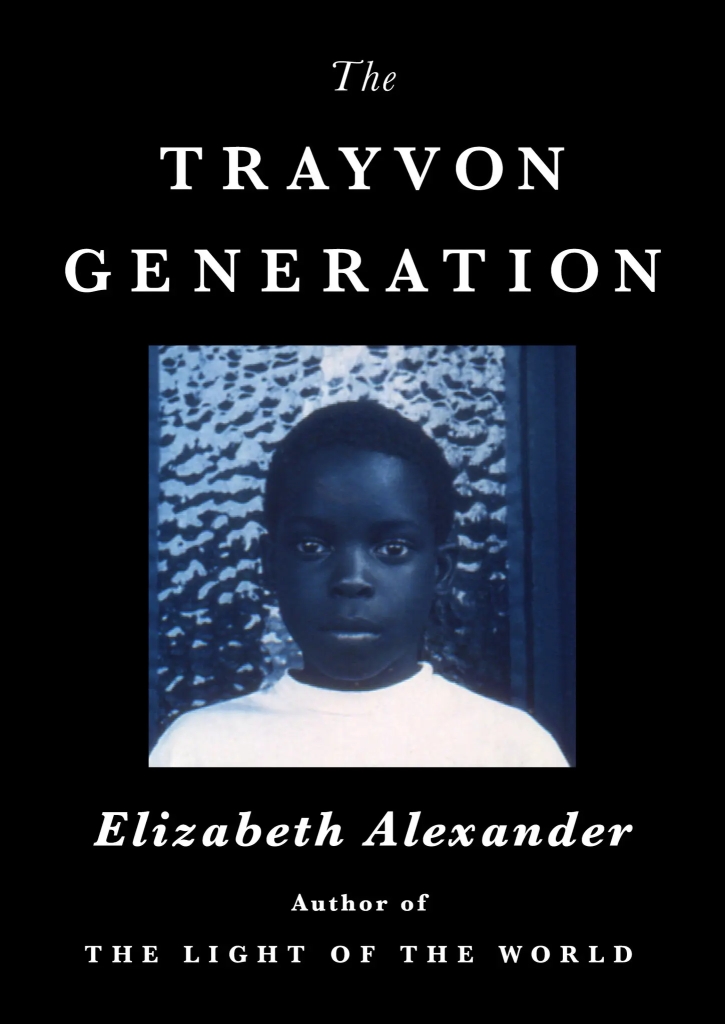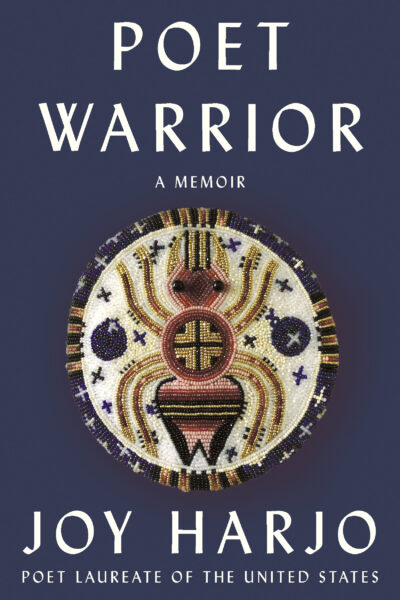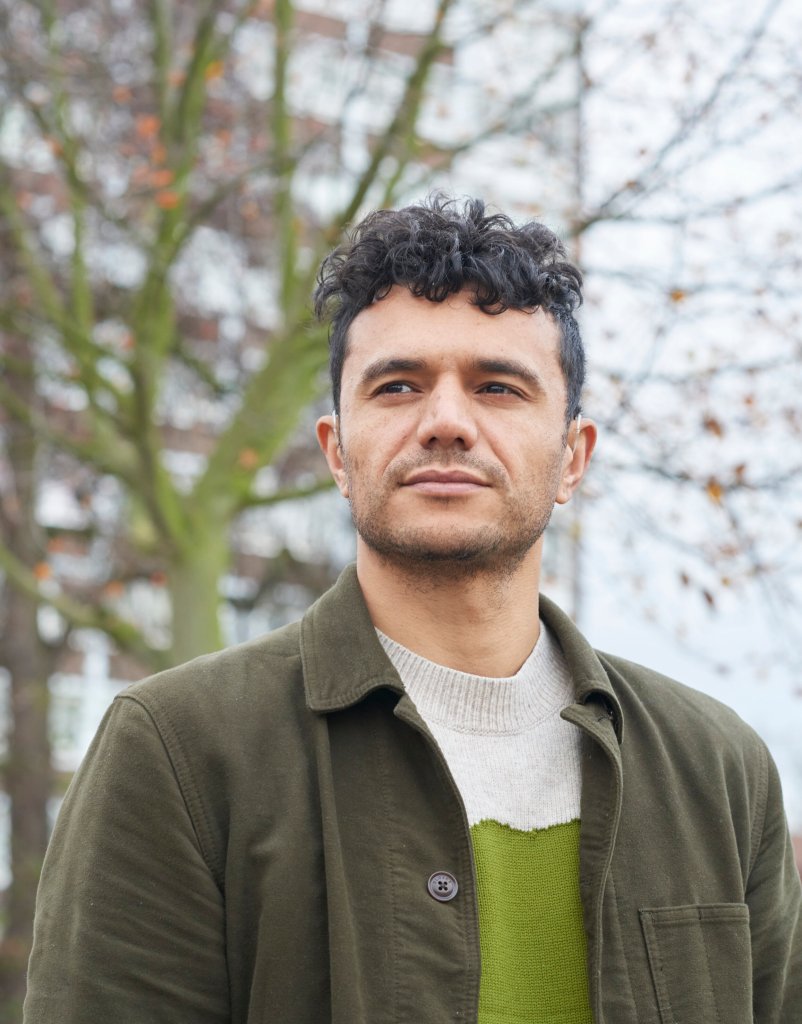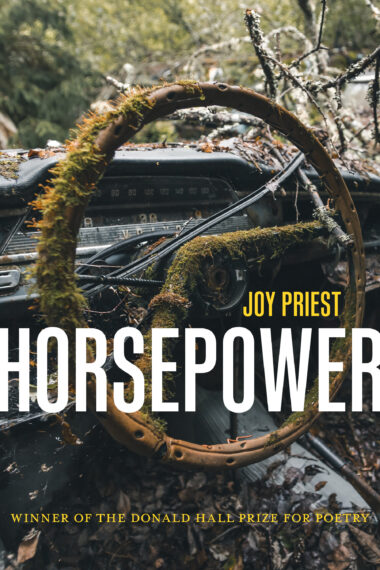Contemporary Poetry Books
SPOKEN WORD
A “rich hybrid of memoir and history” (The New Yorker) of the literary art form that has transformed the cultural landscape, by one of its influential practitioners, an award-winning poet, professor, and slam champion
“Bennett…transport[s] us back to the city blocks, bars, cafes and stages these artists traversed and inhabited…an instructive text for young poets, artists or creative entrepreneurs trying to find a way to carve out a space for themselves…Shines with a refreshing dynamism.” —The New York Times
“In 2009, when he was twenty years old, Joshua Bennett was invited to perform a spoken word poem for Barack and Michelle Obama, at the same White House “Poetry Jam” where Lin-Manuel Miranda declaimed the opening bars of a work-in-progress that would soon revolutionize American theater. That meeting is but one among many in the trajectory of Bennett’s young life, as he rode the cresting wave of spoken word through the 2010s. In this book, he goes back to its roots, considering the Black Arts movement and the prominence of poetry and song in Black education; the origins of the famed Nuyorican Poets Cafe in the Lower East Side living room of the visionary Miguel Algarín, who hosted verse gatherings with legendary figures like Ntozake Shange and Miguel Piñero; the rapid growth of the “slam” format that was pioneered at the Get Me High Lounge in Chicago; the perfect storm of spoken word’s rise during the explosion of social media; and Bennett’s own journey alongside his older sister, whose work to promote the form helped shape spaces online and elsewhere dedicated to literature and the pursuit of human freedom.” (–From the Publisher)
VINEGAR HILL
By Colm Tóibín, Penguin
From the New York Times best-selling author of Brooklyn, Colm Tóibín’s first collection of poetry explores sexuality, religion, and belonging through a modern lens
“Fans of Colm Tóibín’s novels, including The Magician, The Master, and Nora Webster, will relish the opportunity to re-encounter Tóibín in verse. Vinegar Hill explores the liminal space between private experiences and public events as Tóibín examines a wide range of subjects—politics, queer love, reflections on literary and artistic greats, living through COVID, and facing mortality. The poems reflect a life well-traveled and well-lived; from growing up in the town of Enniscorthy, wandering the streets of Dublin, and crossing the bridges of Venice to visiting the White House, readers will travel through familiar locations and new destinations through Tóibín’s unique lens.” -(-From the Publisher)
Please Make Me Pretty, I Don’t Want to Die
By Tawanda Mulalu (Princeton University Press)
Tawanda Mulalu’s first book is an energetic and energizing assemblage of restlessly shifting modes, juggling forms and shuffling styles. The linguistic playfulness that animates his poems conceals neither their serious intent nor their underlying melancholy. A poem titled “Ear” begins with a line August Kleinzahler might envy: “Van Gogh’s ear is lying now without Zyrtec in a field.” “American Elegy” begins: “I know no music for how a country should end.” (I’m not sure I do either, but I wouldn’t be surprised if Mulalu were the one to invent it.) “Everyone is dying,” he observes in one of four poems titled “Prayer.” And, he adds: “There are such pretty words for this.” ―The Washington Post
The Trayvon Generation by Elizabeth Alexander
“A profound and lyrical meditation on race, class, justice and their intersections with art…Magnificent.”―New York Times
“Powerful, poignant, and deeply moving. I hope you’ll check it out.” ―Michelle Obama, Former First Lady of the United States
“A series of meditations on cultural and artistic artifacts that illuminate “the color line”…Alexander is like a cultural archaeologist, dusting off and examining relics and shedding new light on the society that produced them…She brings a poet’s clarity of language to the fraught national discussion.”―TIME
“In Elizabeth Alexander’s beautiful, relevant book, The Trayvon Generation, the poet redefines the proximity of Black identity to loss as an opportunity to create new rituals and a new paradigm…The book offers wisdom, reflection, and reportage with a crystalline precision infused with a powerful, elegant empathy.”―The Boston Globe
THE WORLD KEEPS ENDING, AND THE WORLD GOES ON, by Franny Choi. (Ecco.) As its title suggests, Choi’s third book is concerned simultaneously with apocalypse and survival. “I know I should want to be torn open/by the failures of hope,” she writes in one poem, “but here’s what I want:/a tight circle around everyone I love.” NYT
THE THRESHOLD: Poems, by Iman Mersal. Translated by Robyn Creswell. (Farrar, Straus & Giroux.) Since her debut collection in 1995, Mersal has established herself as one of Egypt’s top poets; this selection, drawn from her first four books and nimbly translated from the Arabic, showcases the sweet, tough verve of her voice. NYT
THE SYMMETRY OF FISH, by Su Cho. (Penguin Books, paperback.) This book, Cho’s first, draws on her immigrant experience, with nods to folklore and Korean calligraphy sprinkled throughout. But the presiding spirit is impish, as in “Ode to Wanting to Run Over Other People’s Children in the Church Parking Lot.” NYT
JERSEY BREAKS by Robert Pinsky
“Truly the voice of the Jersey Shore.” —Bruce Springsteen
In late-1940s Long Branch, a historic but run-down Jersey Shore resort town, in a neighborhood of Italian, Black, and Jewish families, Robert Pinsky began his unlikely journey to becoming a poet. Descended from a bootlegger grandfather, an athletic father, and a rebellious tomboy mother, Pinsky was an unruly but articulate high school C student, whose obsession with the rhythms and melodies of speech inspired him to write.
Pinsky traces the roots of his poetry, with its wide and fearless range, back to the voices of his neighborhood, to music and a distinctly American tradition of improvisation, with influences including Mark Twain and Ray Charles, Marianne Moore and Mel Brooks, Emily Dickinson and Sid Caesar, Dante Alighieri and the Orthodox Jewish liturgy. He reflects on how writing poetry helped him make sense of life’s challenges, such as his mother’s traumatic brain injury, and on his notable public presence, including an unprecedented three terms as United States poet laureate.
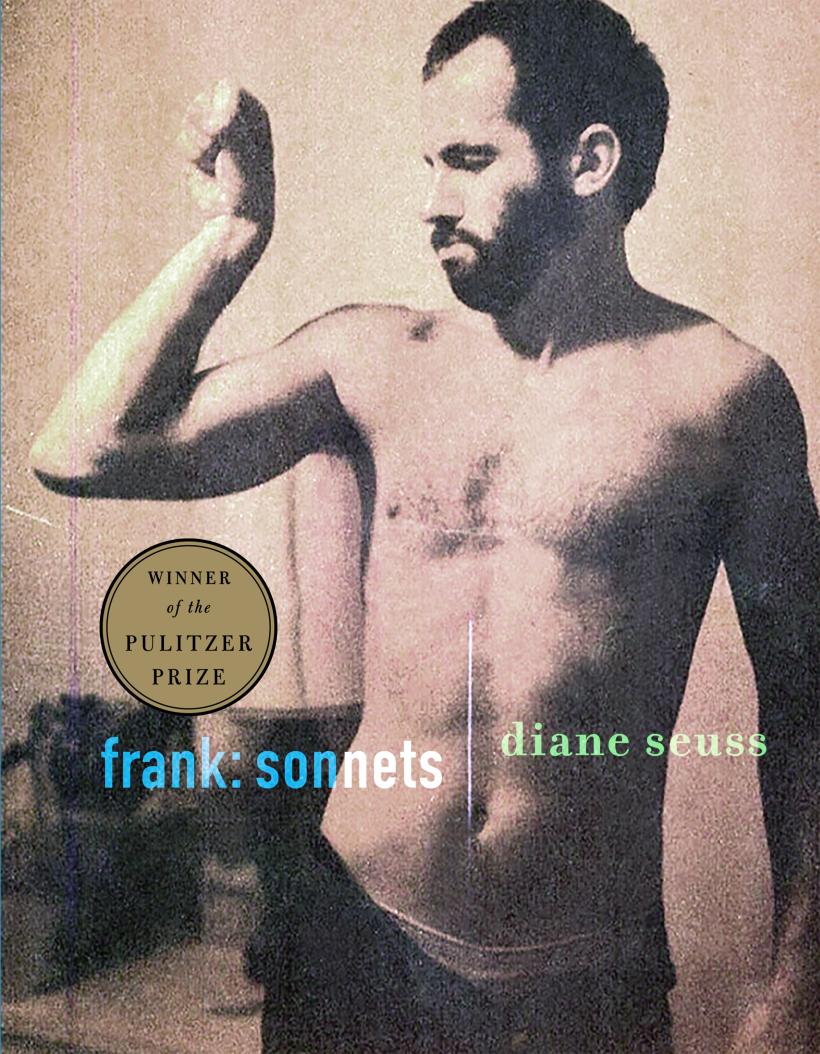
frank: sonnets by Diane Seuss
Winner of the 2022 Pulitzer Prize in Poetry
Winner of the 2021 National Book Critics Circle Award for Poetry
Finalist for the 2022 Kingsley Tufts Poetry Award
“The sonnet, like poverty, teaches you what you can do / without,” Diane Seuss writes in this brilliant, candid work, her most personal collection to date. These poems tell the story of a life at risk of spilling over the edge of the page, from Seuss’s working-class childhood in rural Michigan to the dangerous allures of New York City and back again. With sheer virtuosity, Seuss moves nimbly across thought and time, poetry and punk, AIDS and addiction, Christ and motherhood, showing us what we can do, what we can do without, and what we offer to one another when we have nothing left to spare. Like a series of cels on a filmstrip, frank: sonnets captures the magnitude of a life lived honestly, a restless search for some kind of “beauty or relief.” Seuss is at the height of her powers, devastatingly astute, austere, and—in a word—frank.
(From the publisher Graywolf)
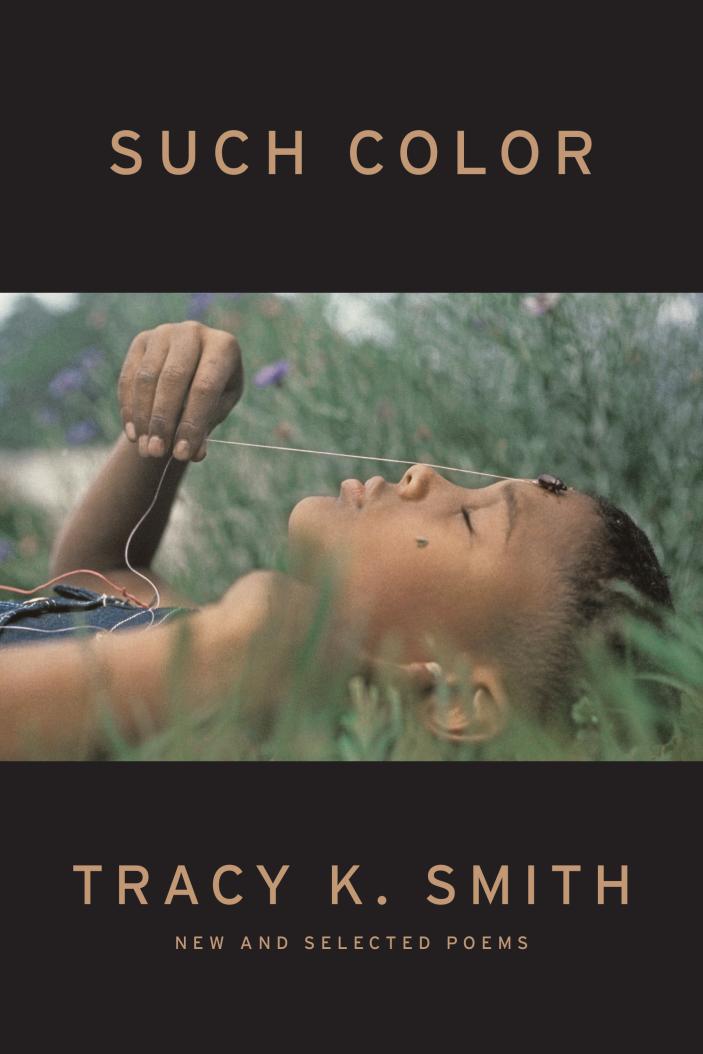
Such Color: New and Selected Poems by Tracy K. Smith
“Haunting and vital, [Such Color is] the perfect encapsulation of a remarkable body of work.”—TIME
Is the world intended for me? Not just me but
The we that fills me? Our shadows reel and dart.
Our blood simmers, stirred back. What if
The world has never had—will never have—our backs?
The world has never had—will never have—our backs.
Our blood simmers, stirred back. What if
The we that fills me, our shadows real and dark,
Is the world intended for me?
—from “I Sit Outside in Low Late-Afternoon Light to Feel Earth Call to Me”
Celebrated for its extraordinary intelligence and exhilarating range, the poetry of Tracy K. Smith opens up vast questions. Such Color: New and Selected Poems, her first career-spanning volume, traces an increasingly audacious commitment to exploring the unknowable, the immense mysteries of existence. Each of Smith’s four collections moves farther outward: when one seems to reach the limits of desire and the body, the next investigates the very sweep of history; when one encounters death and the outer reaches of space, the next bears witness to violence against language and people from across time and delves into the rescuing possibilities of the everlasting. Smith’s signature voice, whether in elegy or praise or outrage, insists upon vibrancy and hope, even—and especially—in moments of inconceivable travesty and grief. (From the Publisher Graywolf Press)
POET WARRIOR: A Memoir by Joy Harjo
Joy Harjo, the first Native American to serve as U.S. poet laureate, invites us to travel along the heartaches, losses, and humble realizations of her “poet-warrior” road. A musical, kaleidoscopic, and wise follow-up to Crazy Brave, Poet Warrior reveals how Harjo came to write poetry of compassion and healing, poetry with the power to unearth the truth and demand justice.
Harjo listens to stories of ancestors and family, the poetry and music that she first encountered as a child, and the messengers of a changing earth—owls heralding grief, resilient desert plants, and a smooth green snake curled up in surprise. She celebrates the influences that shaped her poetry, among them Audre Lorde, N. Scott Momaday, Walt Whitman, Muscogee stomp dance call-and-response, Navajo horse songs, rain, and sunrise. In absorbing, incantatory prose, Harjo grieves at the loss of her mother, reckons with the theft of her ancestral homeland, and sheds light on the rituals that nourish her as an artist, mother, wife, and community member.
Refractive Africa: Ballet of the Forgotten
Will Alexander
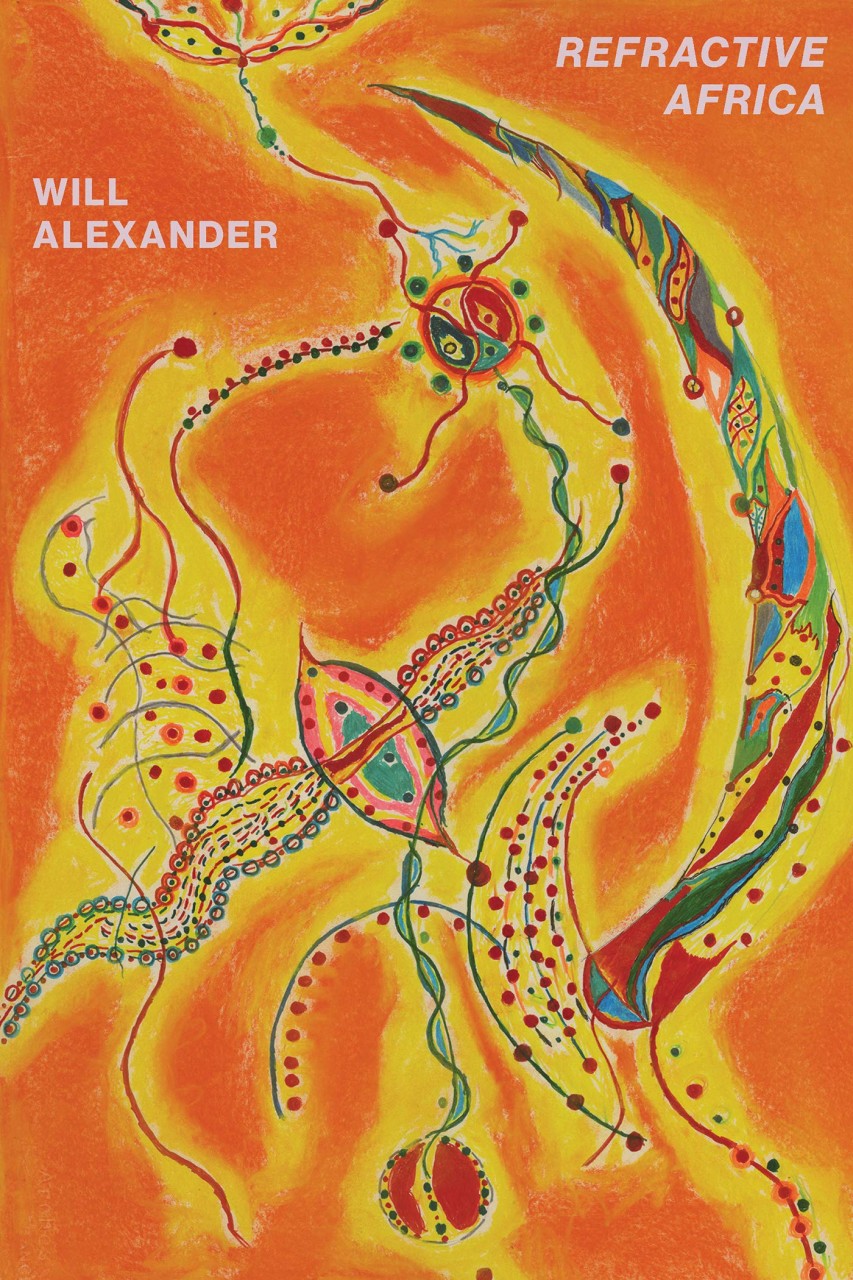
“The poet is endemic with life itself,” Will Alexander once said, and in this searing pas de trois, Refractive Africa: Ballet of the Forgotten, he has exemplified this vital candescence with a transpersonal amplification worthy of the Cambrian explosion. “This being the ballet of the forgotten,” he writes as diasporic witness, “of refracted boundary points as venom.” The volume’s opening poem pays homage to the innovative Nigerian-Yoruban author Amos Tutuola; it ends with an encomium to the modernist Malagasy poet Jean-Joseph Rabearivelo—two writers whose luminous art suffered “colonial wrath through refraction.” A tribute to the Congo forms the bridge and brisé vole of the book: the Congo as “charged aural colony” and “primal interconnection,” a “subliminal psychic force” with a colonial and postcolonial history dominated by the Occident. Will Alexander’s improvisatory cosmicity pushes poetic language to the point of most resistance—incantatory and swirling with magical laterality and recovery.
(Click to Pulitzer finalist list to read more.)
Twice Alive by Forrest Gander
In the searing poems of his new collection, Twice Alive, the Pulitzer Prize-winner Forrest Gander addresses the exigencies of our historical moment and the intimacies, personal and environmental, that bind us to others and to the world. Drawing from his training in geology and his immersion in Sangam literary traditions, Gander invests these poems with an emotional intensity that illuminates our deep-tangled interrelations.
While conducting fieldwork with a celebrated mycologist, Gander links human intimacy with the transformative collaborations between species that compose lichens. Throughout Twice Alive, Gander addresses personal and ecological trauma—several poems focus on the devastation wrought by wildfires in California, where he lives—but his tone is overwhelmingly celebratory.
“The Wild Fox of Yemen” by Threa Almontaser
By turns aggressively reckless and fiercely protective, always guided by faith and ancestry, Threa Almontaser’s incendiary debut asks how mistranslation can be a form of self-knowledge and survival. A love letter to the country and people of Yemen, a portrait of young Muslim womanhood in New York after 9/11, and an extraordinarily composed examination of what it means to carry in the body the echoes of what came before, Almontaser’s polyvocal collection sneaks artifacts to and from worlds, repurposing language and adapting to the space between cultures.
Half-crunk and hungry, speakers move with the force of what cannot be contained by the limits of the American imagination, and instead invest in troublemaking and trickery, navigate imperial violence across multiple accents and anthems, and apply gang signs in henna, utilizing any means necessary to form a semblance of home. In doing so, “The Wild Fox of Yemen” fearlessly rides the tension between carnality and tenderness in the unruly human spirit.
Note: This book also won the Walt Whitman Award of the Academy of American Poets.
THE HILL WE CLIMB by AMANDA GORMAN
Amanda Gorman reached a worldwide audience with her reading of “The Hill We Climb” during the inauguration of President Joe Biden. Her first collection of poems shares the title of the inaugural poem. The book, “The Hill We Climb,” swiftly topped Amazon’s bestseller list, even though it will not be available until September. Gorman is the youngest inaugural poet in U.S. history. “The Hill We Climb” is her first ever collection of poetry. In 2017, Gorman became the first National Youth Poet Laureate. Gorman has stated that she struggled with a speech impediment throughout her life, making poetry a “lifeline” for her. She has a long-term goal of running for president.
Poets, Philosophers, Lovers: On the Writings of Giannina Braschi
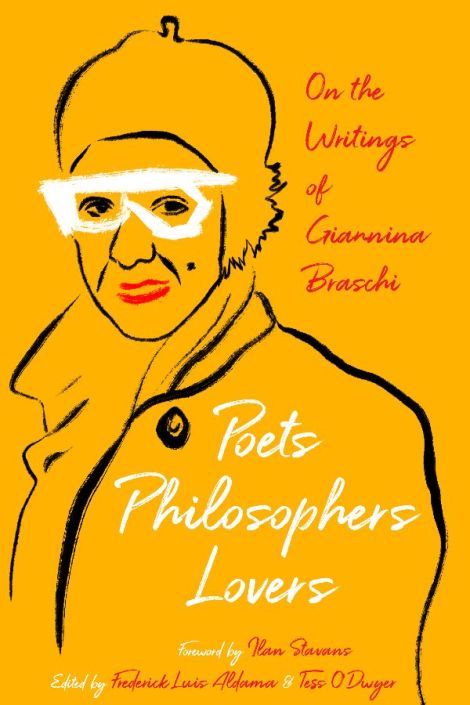
Foreword by Ilan Stavans
Edited by Frederick Luis Aldama and Tess O’Dwyer
This U Pittsburgh collection of essays, by fifteen scholars across diverse fields, explores forty years of writing by Giannina Braschi, one of the most important Latinx poets. Since the 1980s, Braschi’s work blends theatre, poetry, fiction, essay, musical, manifesto, political philosophy, and spoken word. Her best-known titles are El imperio de los sueños, Yo-Yo Boing!, and United States of Banana. She writes in Spanish, Spanglish, and English and embraces timely and enduring subjects: love, liberty, creativity, environment, economy, borders, debt, incarceration, colonialization, and terrorism. Her work has been widely adapted into theater, photography, film, lithography, painting, sculpture, comics, and music.
Essays by Ilan Stavans, Madelena Gonzalez, John “Rio” Riofrio, Anne Ashbaugh, Francisco Moreno-Fernández, Maritza Stanchich, Cristina Garrigós, Laura R. Loustau, Elizabeth Lowry, Daniela Daniele, Dorian Lugo Bertrán, Ronald Mendoza-de Jesús, Francisco José Ramos, Rolando Pérez.
“At long last! Aldama and O’Dwyer have brought together a lineup of talent to match the vivacious audacity of Giannina Braschi. Admirers of Braschi will feast on every sumptuous page of this book, and they’ll return to her lush storyworlds with renewed vigor. Poets, Philosophers, Lovers reveals the challenging necessity of this transformative Latinx author.” —Christopher González
THE ESSENTIAL JUNE JORDAN
“Collected here are blazing examples of poetry as activism, stanzas that speak truth to power and speak out against violence against women and police brutality. But Jordan also speaks on the significance of hope, mixing, as Brown puts it, ‘the doom and devastation made mundane through media with the hard decision to love anyway.'”―O, The Oprah Magazine
The Essential June Jordan honors the enduring legacy of a poet fiercely dedicated to building a better world. In this volume, introduced by Pulitzer Prize winner Jericho Brown, June Jordan’s generous body of poetry is distilled and curated to represent the very best of her works. Written over the span of several decades―from Some Changes in 1971 to Last Poems in 2001―Jordan’s poems are at once of their era and tragically current, with subject matter including racist police brutality, violence against women, and the opportunity for global solidarity amongst people who are marginalized or outside of the norm. In these poems of great immediacy and radical kindness, humor and embodied candor, readers will (re)discover a voice that has inspired generations of contemporary poets to write their truths. Introduced by Jericho Brown, winner of the 2020 Pulitzer prize in poetry.
THE PERSEVERANCE by Raymond Antrobus
The Perseverance explores’s the poet’s identity as a deaf Jamaican British man. Sign language illustrations appear sporadically, and one poem is a scornful riposte to Ted Hughes’s “Deaf School.” Malika Booker says, ‘These are courageous autobiographical poems of praise, difficulties, testimony and love.’
Antrobus’s work has been recognized by the Ted Hughes award, PBS Winter Choice, A Sunday Times Young Writer of the year award, Somerset Maugham award and The Guardian Poetry Book Of The Year 2018. He also won The Geoffrey Dearmer Prize‘ (Judged by Ocean Vuong) for his poem ‘Sound Machine‘. He has received fellowships from Cave Canem, Complete Works and Jerwood Compton Poetry. He has had multiple residencies in deaf and hearing schools around London.

Pale Colors in a Tall Field by Carl Phillips
Carl Phillips’s new poetry collection published by FSG, Pale Colors in a Tall Field, is a meditation on the intimacies of thought and body as forms of resistance. The poems are both timeless and timely, asking how we can ever truly know ourselves in the face of our own remembering and inevitable forgetting. Here, the poems metaphorically argue that memory is made up of various colors, with those most prominent moments in a life seeming more vivid, though the paler colors are never truly forgotten. The poems in Pale Colors in a Tall Field approach their points of view kaleidoscopically, enacting the self’s multiplicity and the difficult shifts required as our lives, in turn, shift.
Phillips was born in St.Kitts and came to Britain at the age of four months. He grew up in Leeds, and studied English Literature at Oxford. He began writing for the theatre and his plays include Strange Fruit, Where There is Darkness and The Shelter. He wrote the screenplay for the film Playing Away and his screenplay for the Merchant Ivory adaptation of V.S.Naipaul’s The Mystic Masseur won the Silver Ombu for best screenplay at the Mar Del Plata film festival in Argentina. His novels are: The Final Passage, A State of Independence, Higher Ground, Crossing the River, The Nature of Blood, In the Falling Snow, The Lost Child, and A View of the Empire at Sunset. His non-fiction: The European Tribe, The Atlantic Sound, and Colour Me English.

Postcolonial Love Poem by Natalie Diaz
WINNER OF THE PULITZER PRIZE
NPR: In her fervently anticipated second collection, Diaz makes the love poem into a frame, a form for contemplation of the politics and injustices that have oppressed Native Americans since before the founding of our country. How could there be a separation between the personal and the political when every circumstance is inflected by the wars “which started me, which I lost and won — / these ever-blooming wounds.”
Diaz locates the battles everywhere, in government-sanctioned violence (“Police kill Native Americans more/ than any other race. Race is a funny word./ Race implies someone will win,/ implies I have as good a chance of winning as –“); in skill at basketball (“We know how to block shots, how to stuff them down your throat, because when you say, Shoot, we hear howitzer and Hotchkiss and Springfield Model 1873”); in bed with another woman, where her hands “moved like rivers –/ like glory, like light –/ over the seven days of your body” and finds no small sense of triumph.
Natalie Diaz is Mojave and an enrolled member of the Gila River Indian community. Diaz played professional basketball in Europe and Asia before returning to Old Dominion to earn an MFA. She is the author of the poetry collection When My Brother Was an Aztec (2012), which New York Times described as an “ambitious … beautiful book.” Her honors and awards include the Nimrod/Hardman Pablo Neruda Prize for Poetry, the Louis Untermeyer Scholarship in Poetry from Bread Loaf, the Narrative Poetry Prize, and a Lannan Literary Fellowship.

In the Lateness of the World by Carolyn Forché
Carolyn Forché‘s first poetry collection in almost two decades writes of the sorrow of witness.
“She writes in many modes: elegies to the present day; lamentations over our wrecked environment (‘In the sea, they say, there is an island made of bottles and other trash’); and first person confessionals. Cast in long-lined couplets, free verse sequences, and jagged stanzas, Forché’s best poems — and this new book contains some of them — speak as a kind of generalized conscience, ‘someone standing in the aftermath,’ heavy with guilt, but also lit by a strange hope that stems from an unshakable belief in human goodness and perseverance: ‘Come the morning, launch your boats.’ NPR
Forché is also a noted translator and teacher. Her translations of poets as various as Claribel Alegría, Georg Trakl, Robert Desnos and Mahmoud Darwish have won great critical acclaim. She has won numerous grants and awards, including fellowships from the Lannan Foundation, the National Endowment for the Arts, and the Academy of American Poets. In 1997, she was presented with the Edita and Ira Morris Hiroshima Foundation Award for using her poetry as a “means to attain understanding, reconciliation, and peace within communities and between communities.” Forché is a Professor at Georgetown where she directs the Lannan Center for Poetics and Social Practice.
Horsepower by Joy Priest
Priest’s debut collection, Horsepower, is a cinematic escape narrative that radically envisions a daughter’s waywardness as aspirational. Across the book’s three sequences, we find the black-girl speaker in the midst of a self-imposed exile, going back in memory to explore her younger self—a mixed-race child being raised by her white supremacist grandfather in the shadow of Churchill Downs, Kentucky’s world-famous horseracing track—before arriving in a state of self-awareness to confront the personal and political landscape of a harshly segregated Louisville.
“Horsepower, Joy Priest’s debut collection, is a captivating display of might and elegance, a language of astonishing sinew through which the backdrop of place and a compelling life come into vivid focus.” Natasha Trethewey
Priest is a member of the Affrilachian Poets. Her poems and essays have appeared in Callaloo, Connotation Press, Four Way Review, espnW, Gulf Coast, Mississippi Review, The Rumpus, and Third Coast. Her work has been anthologized in Black Bone: 25 Years of the Affrilachian Poets, The Breakbeat Poets: New American Poetry in the Age of Hip Hop, and Best New Poets 2014 and 2016. Priest is the winner of a Gearhart Poetry Prize from The Southeast Review. She was a Nikki Giovanni Scholar at the Appalachian Writers’ Workshop and a Gregory Pardlo Scholar at The Frost Place. She won a College Writers’ Award from the Hurston/Wright Foundation.
“The Vault” by Andrés Cerpa
Available at Amazon and Bookshop from $15.69
The Vault is a quiet and vulnerable sequence of ethereal fragments, letters, and poems that trace a narrative of love and healing in the afterlife of a parental death. Seasons turn and a life is built despite the ruin. Each poem is a music box of prayer, of the decisions made and yet to be made.
Descriptions of books noted above were from publishers and fans alike, as well as from articles such as this: https://www.businessinsider.com/national-book-award-poetry-longlist-2021



